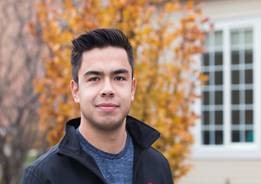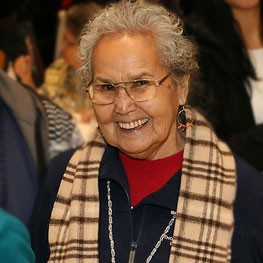Journal
The Knowledge Makers Journal is a peer-reviewed Indigenous interdisciplinary journal. This journal provides leading-edge thought and investigation from both current and alumni Knowledge Makers, Indigenous staff and Indigenous academics, along with ally scholars from Canada and internationally. The Knowledge Makers Journal is published annually in hard copy and online. Between 2016 and 2019, 88 articles have been published.
2016
Our 2016 journal had 21 contributors. We opened with Marcus Scherer’s reflections on his participation in Knowledge Makers, which reminds us of the importance of research and how research and education has shaped us all. We then shared our thoughts on Indigenous research methodologies, photography, education, governance, law, environment and identity. Indigenous scholars offered their reflections on the importance of Indigenous research. We closed with Elder Mike Arnouse, whose words took us back to a moment in time where we shared stories, laughter and song, and reminded us that our efforts today can influence future possibilities.
View PDF2017
Our 2017 journal had 22 contributors. We open with Marina Troke’s paper on the critical potency (like ‘lightning’) of Indigenous researchers being knowledge makers. The following papers then weaved together knowledge making on identity, youth, art, research methods, international understandings, technology, social work, e-portfolios, substance abuse, communication, researcher mentoring, culture and politics, tourism, cultural safety, sustainable hunting, achievement in post-secondary education, Secwépemc research, and Secwépemc epistemology. Threaded alongside the undergraduate Knowledge Makers’ papers were those from past Knowledge Makers and established Indigenous scholars, further strengthening our expanding Knowledge Makers research community. We closed with Elder Mike Arnouse’s words, which reminded us that we come from strength; through our work together as Knowledge Makers we draw on our “original capabilities.” It is this collective strength, this potential, that is so present throughout this Knowledge Makers journal.
View PDF2018
Our 2018 journal had 21 contributors. We open with Aaron Fredborg, who explores the impact of the current K-12 system on Indigenous students and suggests a way forward that is inclusive of all learners. We share our thoughts on Indigenous research, the importance of our languages and cultural practices in resurgence, self-determination and self-governance, and how our epistemologies can interact with Western epistemologies. We reflect on authentic tourism experiences, the cultural and ecological impacts of declining salmon stocks, and our own personal biases. Our last article comes from Roxie Defant, who urges us to “forget decolonization and reconciliation” and “start with radical cultural resurgence.” We close with words from Elder Mike Arnouse, who reminds us what we do as Indigenous researchers is share our people’s knowledge and stories in ways that are inspired by Coyote. This has been a great journey that is a privilege to share with everyone.
View PDF2019
Our 2019 journal had 24 contributors. We open with Sandra Bandura, who reflects on the words of the Knowledge Makers who came before her and the lessons that they offer: “they are the front line, the leaders and the inspiration for me and others. By using their voices, I demonstrate the idea of interconnected knowledge and our connection to each other.” We then share our thoughts on dismantling the Eurocentric foundations of social work, addressing the racism inherent in the justice system, and the impact of colonization on language retention. From there we discuss the loss of medicinal plants, responses to macroaggressions, seeing justice for our communities, healing from addiction, and residential schools. We reflect on our family histories and how they tie to the wider colonial project, the failure of the justice system to uphold the honour of our families, and we ask Thompson Rivers University to uphold its commitment to Indigenous learners. We close with Stephanie Tourand and her reflections on learning to "jig in both worlds" as she balances Indigenous knowledge-making and the academy.
View PDF

